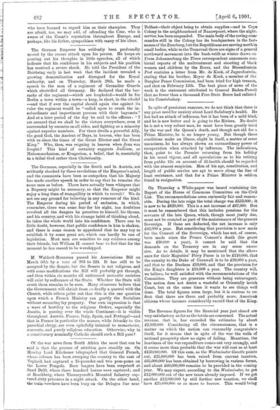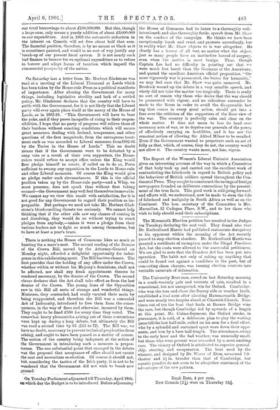The Revenue figures for the financial year just closed are
very satiSfaetory as far as the totals are concerned. The actual revenue, that is, has exceeded the estimates by about 22,869,000. Considering all the circumstances, that is a matter on which the nation can reasonably congratulate itself, for it means that in spite of the war the wells of national prosperity show no signs of failing. Meantime, the heaviness of the war expenditure comes out very strongly, and it seems more than probable that the war will cost us at least £150,000,000. Of this sum, as the Westminster Gazette points out, 225,000,000 has been raised from current taxation, £65,000,000 has been obtained by borrowing in various forms, and about 260,000,000 remains to be provided in the coming year. We may expect, according to the Westminster, to get £12,000,000 out of the new taxes already imposed. If we get another £12,000,000 by still further new taxation, we shall have 235,000,000 or so more to borrow. This would bring Our total borrowings to about 1100,000,000. But this, though a large sum, only means a yearly addition of about £3,000,000 to our expenditure. And in 1903 the automatic reduction in the interest on Consols will set free about half that sum. The financial position, therefore, is by no mean's so black as it is sometimes painted, and would in no sort of way justify any break-up of our present fiscal system. It is not nearly such bad finance to borrow for exceptional expenditure as to refuse to borrow and adopt forms of taxation which imperil the commercial prosperity of the nation.







































 Previous page
Previous page